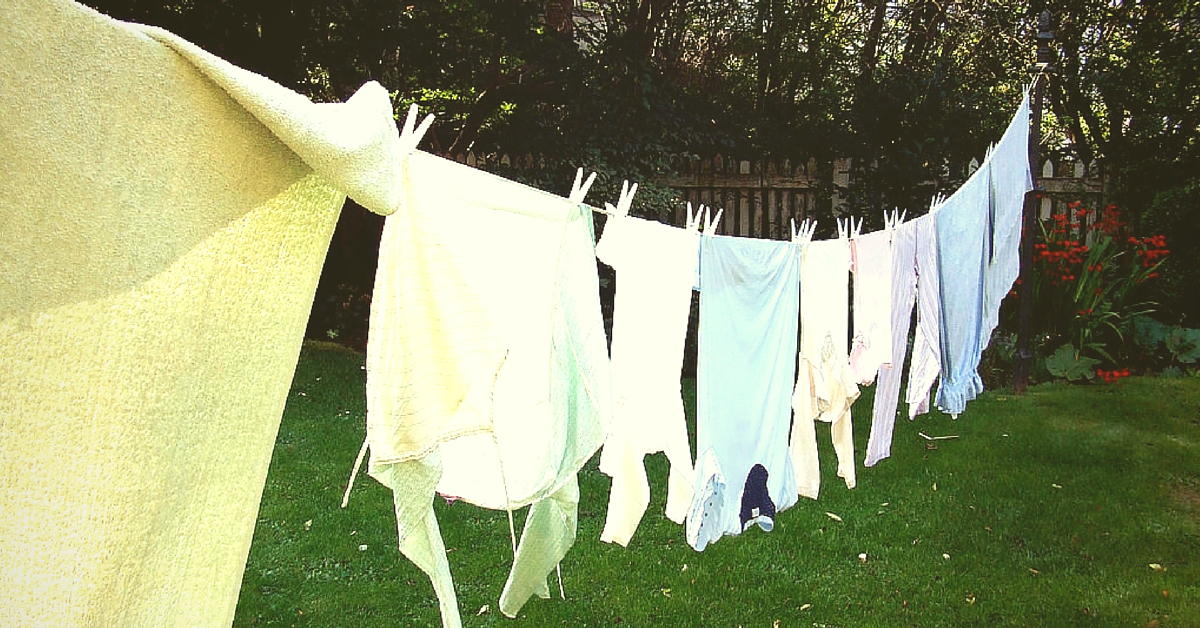No More Laundry? Clothes Might Soon Just Clean Themselves Using Light!
A pioneering nanotechnology research could soon help people get rid of their washing machines because clothes will start cleaning themselves.

A pioneering nanotechnology research could soon help people get rid of their washing machines as clothes will start cleaning themselves. Scientists from RMIT University in Australia have developed a low-cost way to grow nanostructures on textiles that can degrade organic matter when exposed to light.
This means that clothes will clean themselves within minutes of being exposed to sunlight or a light bulb.

Picture for representation only. Source: Katherine/Flickr
“The advantage of textiles is they already have a 3D structure so they are great at absorbing light, which in turn speeds up the process of degrading organic matter,” Rajesh Ramanathan from RMIT University, one of the lead researchers in the team told PTI.
He added that they still have to go a long way before these textiles will become a reality, but a strong foundation for the development of fully self-cleaning textiles has been built.
The team includes other scientists of Indian-origin too, and they have opened the possibility of creation of nano-enhanced textiles that can spontaneously clean themselves and get rid of stains, dirt etc. just with the help of light.
They worked with copper and silver-based nanostructures, which are known for their ability to absorb visible light. These nanostructures receive an energy boost when exposed to light, which leads to the creation of hot electrons that release energy and degrade the organic matter. With the view towards building these nanostructures at an industrial level, the team grew them directly on textiles, some of which cleaned themselves in less than six minutes when exposed to light.
“So now what we are trying to do is use more consumer-related products, like wine stains or food stains, and try to degrade that and how quickly it can degrade, and how much material is actually required to degrade these kinds of stains,” said Rajesh Ramanathan.
Like this story? Or have something to share? Write to us: [email protected], or connect with us on Facebook and Twitter (@thebetterindia).

Similar Story

Want to Play a Role in Shaping India’s Climate Laws & Policies? Here’s a One-Stop Guide
Civis, a platform that enables citizens to participate in public consultations in the domain of environment and policy has released Climate Voices. This is a handbook and guide for Indians to participate in environmental law-making and play an active role in shaping our climate policies.
Read more >
If you found our stories insightful, informative, or even just enjoyable, we invite you to consider making a voluntary payment to support the work we do at The Better India. Your contribution helps us continue producing quality content that educates, inspires, and drives positive change.
Choose one of the payment options below for your contribution-
By paying for the stories you value, you directly contribute to sustaining our efforts focused on making a difference in the world. Together, let's ensure that impactful stories continue to be told and shared, enriching lives and communities alike.
Thank you for your support. Here are some frequently asked questions you might find helpful to know why you are contributing?


This story made me
-
97
-
121
-
89
-
167












